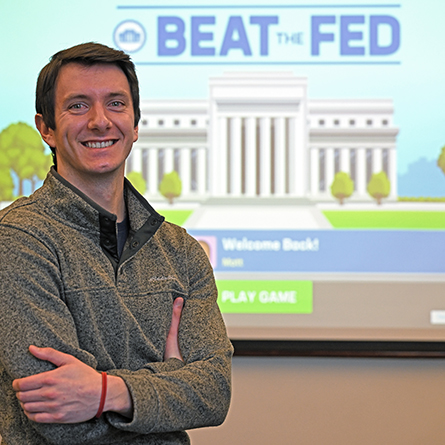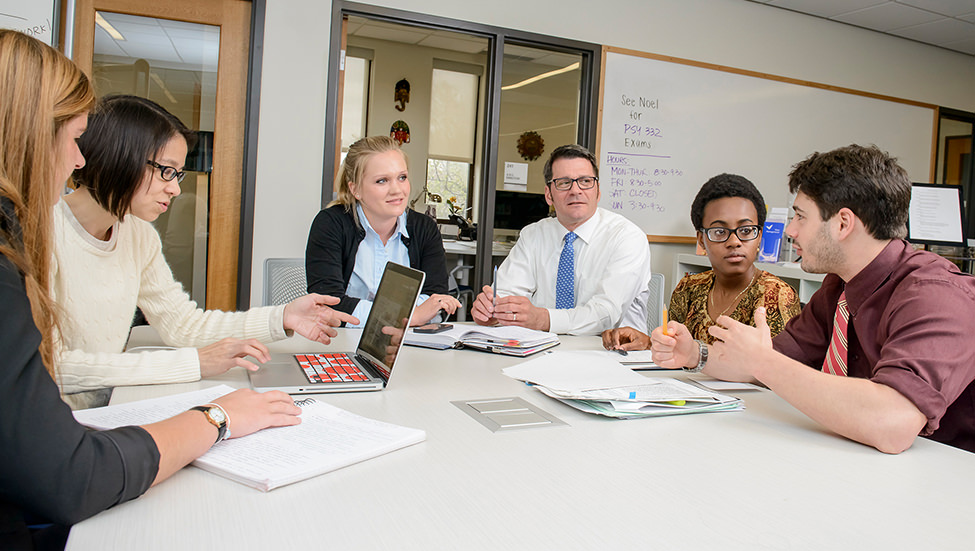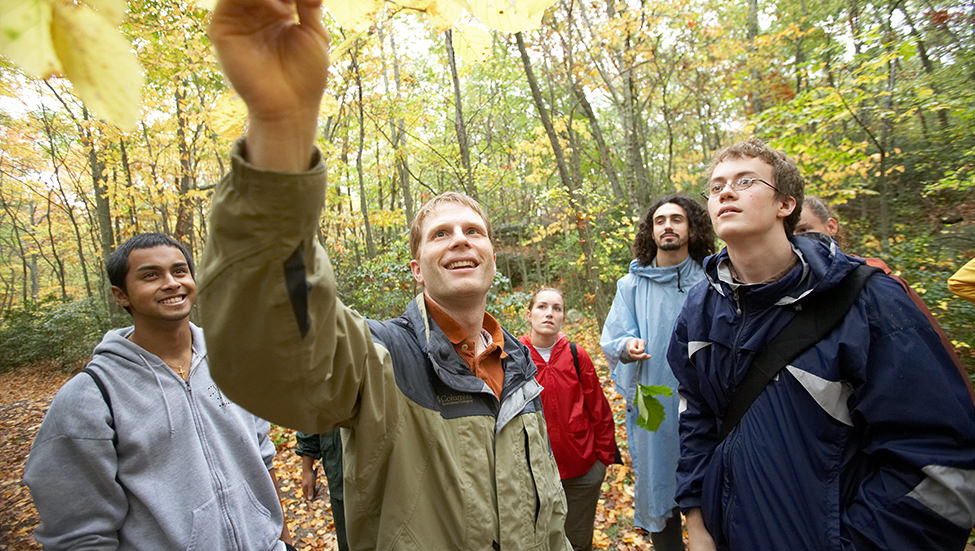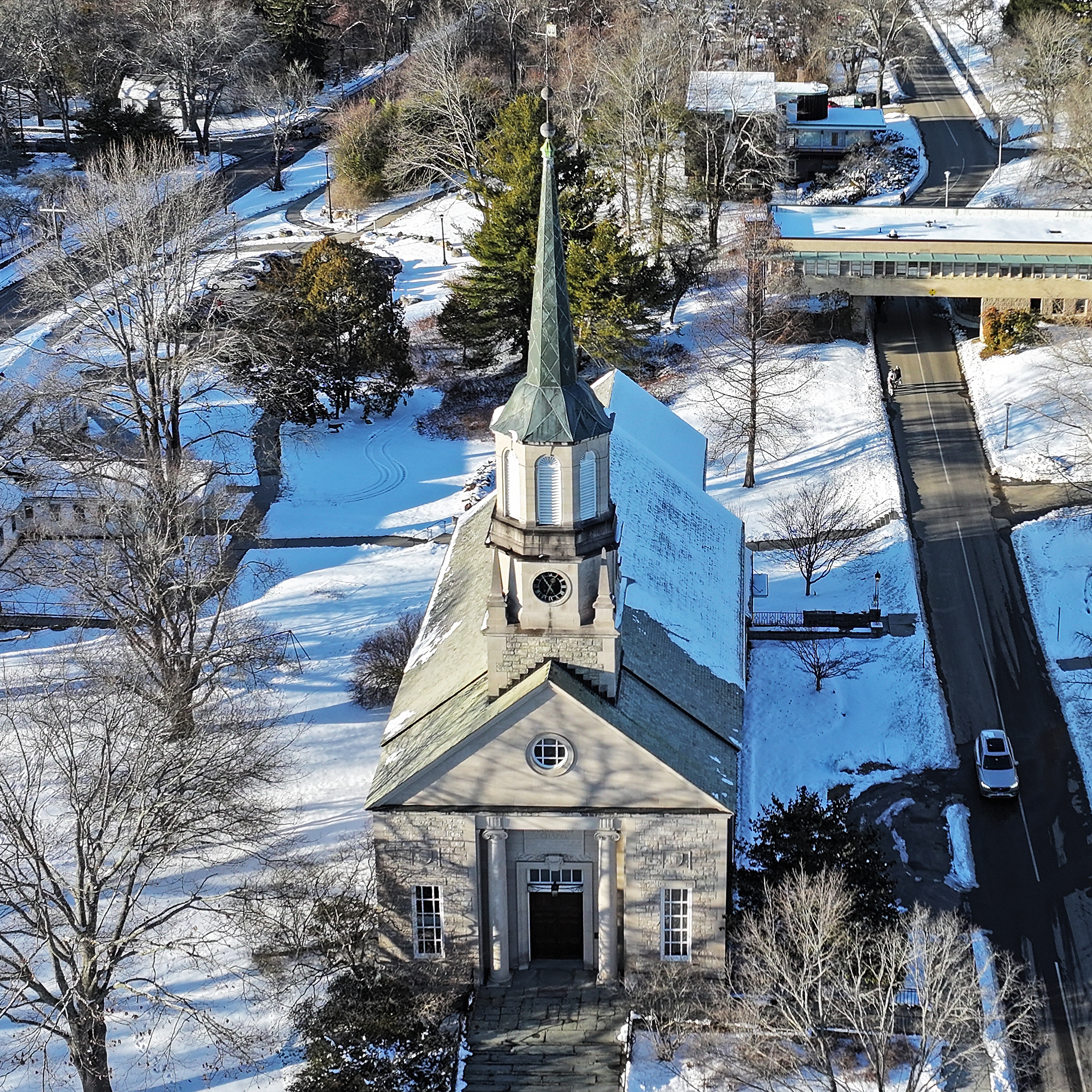
Flexible Minds
How do you gather enough data about early-stage startup companies to be able to develop a successful venture capital strategy?
That is the question venture capitalist Brian Laung Aoaeh ’01 posed to students in Assistant Professor of Statistics Priya Kohli’s statistical computing class this past fall. Aoaeh and Nnamdi Okike, founding general partner at 645 Ventures, worked with the students to give them an inside look at the industry and challenged them to analyze real data to identify and monitor early startups for technology venture capitalists to invest in even before peer seed-stage investors.
“I know how hard they had to work to get data they could use to try to reach meaningful conclusions from their analysis. Data and information are unreliable, or sometimes unavailable in a form that directly answers the questions under examination. Yet, the research analyst’s job is to make sense of it all and draw conclusions that lead businesses to take actions to affect their future direction,” said Aoaeh.
“I was very impressed by the depth of the presentations the students gave on the final day of class.”
The innovative project is part of a new Career Informed Learning initiative that is energizing students, faculty and alumni across the campus. Developed as part of Connections, Connecticut College’s reinvention of the liberal arts, Career Informed Learning is a project-based learning approach to education that brings real-life work challenges into the classroom for students to research, analyze and develop solutions. The challenges are proposed by Connecticut College alumni and parents who have expertise in the areas the students are studying in class.
The program, a collaboration between faculty, the Academic Resource Center, the Hale Center for Career Development, and the Office of Alumni Engagement, is a prime example of how Connections distinctly integrates career preparation into the academic experience. With Career Informed Learning, students can take the content they are learning in the classroom, apply it to the problem posed by the career expert and immediately see that what they are learning in the classroom is highly applicable to what they are going to be doing once they graduate.

“The students benefit from a sustained interaction with a career expert, who is someone at the top of her/his field,” said Noel Garrett, dean of academic support and director of the College’s Academic Resource Center. “This behind-the-scenes examination of how a business works, or how professionals solve real-world challenges, is unique to Connecticut College.”
After a successful pilot last spring, Career Informed Learning was expanded in the fall semester to 15 courses across many disciplines, including anthropology, government, biology, East Asian studies, mathematics, statistics, art history, music, economics, psychology and education.
In Biology Professor Anne Bernhard’s marine ecology class, students worked with Mark Kirk P’18, a professor of biological sciences who has served as a National Science Foundation program director, to write their own National Science Foundation grant proposals. In Professor of Sociology Ron Flores’s “Race and Ethnicity in U.S. Baseball” course, students visited the Baseball Hall of Fame and met with Hall President Jeff Idelson ’86 to explore how a player’s race and place of birth affects the value of memorabilia.
And in Professor Judelysse Gomez’s clinical/community psychology seminar, Maria Gallagher ’95, a practicing bilingual licensed clinical social worker and adjunct professor of social work and child advocacy at Montclair State University, helped students find ways to provide culturally sensitive psychological care in their internships throughout the region.
“Ms. Gallagher brought a perspective to the class that made us consider different aspects of the material we were learning about,” Laura Henderson ’18 said. “I found it fascinating to learn about different techniques in class, like active listening or awareness of nonverbal and verbal cues, and then have the chance to use that knowledge to inform how I interacted at my [practicum] placement.”
At the heart of this initiative is a unique collaboration that combines the Academic Resource Center’s focus on developing powerful learning skills with the applied learning opportunities offered by alumni identified through the College’s Hale Center for Career Development. The office, which was recognized by the Princeton Review as one of the top 20 programs in North America, coordinates the logistics of putting students in touch with alumni and parents who are industry leaders.
“Career Informed Learning enables all students at the College to have the opportunity to work within teams to strengthen their career-related skills and see the impact of their work, which makes them more competitive in the marketplace for internships and full-time jobs,” said Persephone L. Hall, the Hale Family Director of the Hale Center for Career Development.


